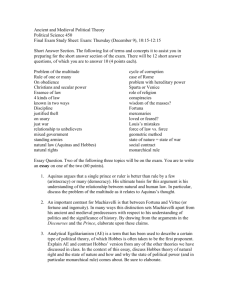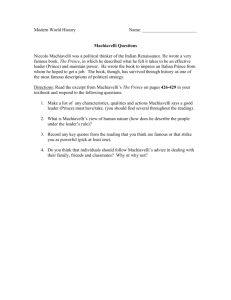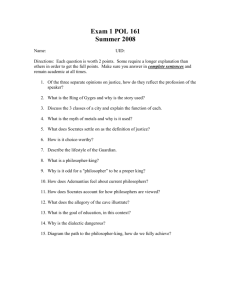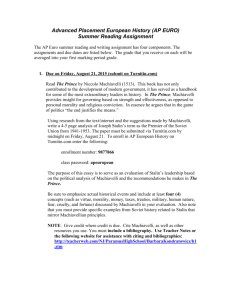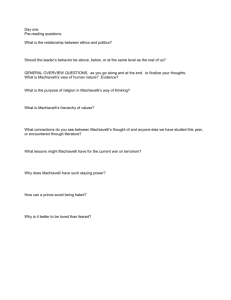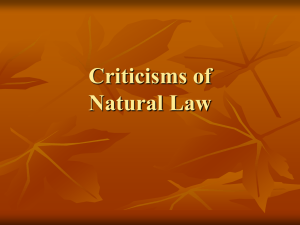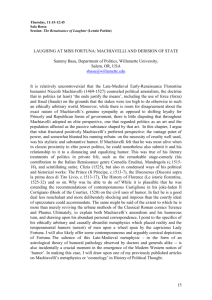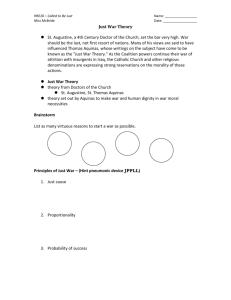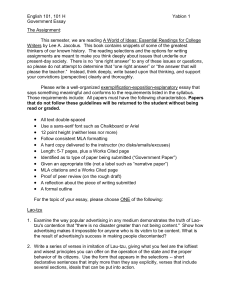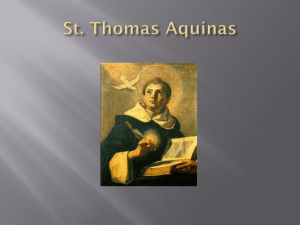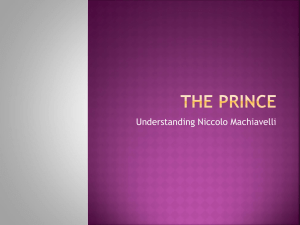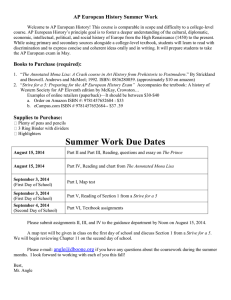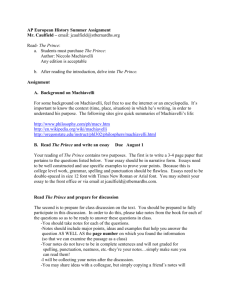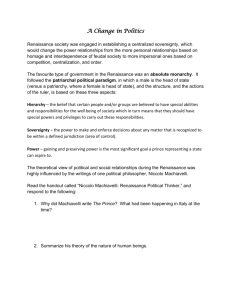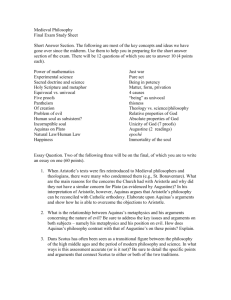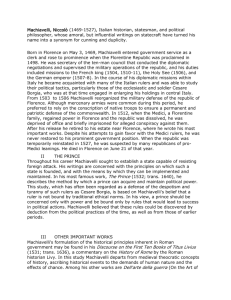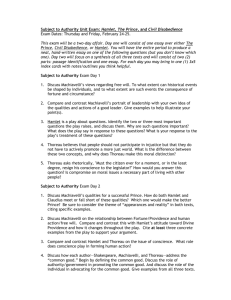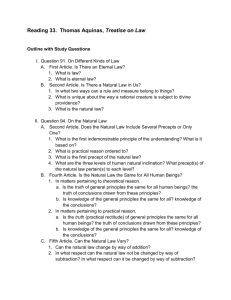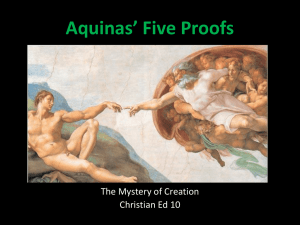Ancient and Medieval Political Theory
advertisement
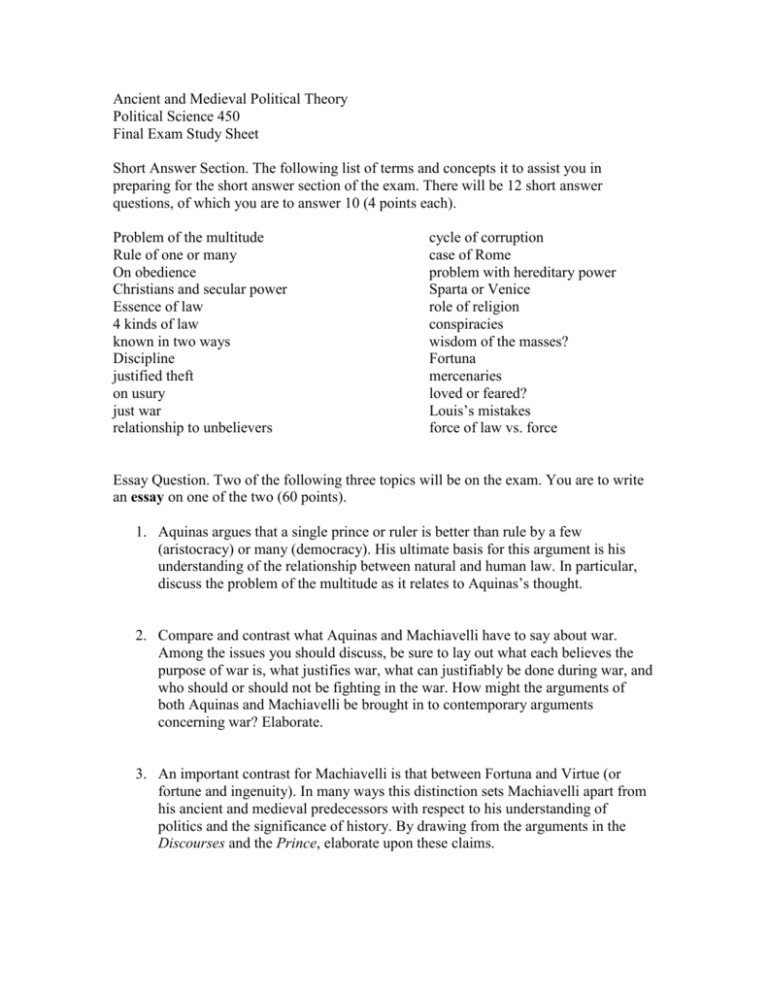
Ancient and Medieval Political Theory Political Science 450 Final Exam Study Sheet Short Answer Section. The following list of terms and concepts it to assist you in preparing for the short answer section of the exam. There will be 12 short answer questions, of which you are to answer 10 (4 points each). Problem of the multitude Rule of one or many On obedience Christians and secular power Essence of law 4 kinds of law known in two ways Discipline justified theft on usury just war relationship to unbelievers cycle of corruption case of Rome problem with hereditary power Sparta or Venice role of religion conspiracies wisdom of the masses? Fortuna mercenaries loved or feared? Louis’s mistakes force of law vs. force Essay Question. Two of the following three topics will be on the exam. You are to write an essay on one of the two (60 points). 1. Aquinas argues that a single prince or ruler is better than rule by a few (aristocracy) or many (democracy). His ultimate basis for this argument is his understanding of the relationship between natural and human law. In particular, discuss the problem of the multitude as it relates to Aquinas’s thought. 2. Compare and contrast what Aquinas and Machiavelli have to say about war. Among the issues you should discuss, be sure to lay out what each believes the purpose of war is, what justifies war, what can justifiably be done during war, and who should or should not be fighting in the war. How might the arguments of both Aquinas and Machiavelli be brought in to contemporary arguments concerning war? Elaborate. 3. An important contrast for Machiavelli is that between Fortuna and Virtue (or fortune and ingenuity). In many ways this distinction sets Machiavelli apart from his ancient and medieval predecessors with respect to his understanding of politics and the significance of history. By drawing from the arguments in the Discourses and the Prince, elaborate upon these claims.
